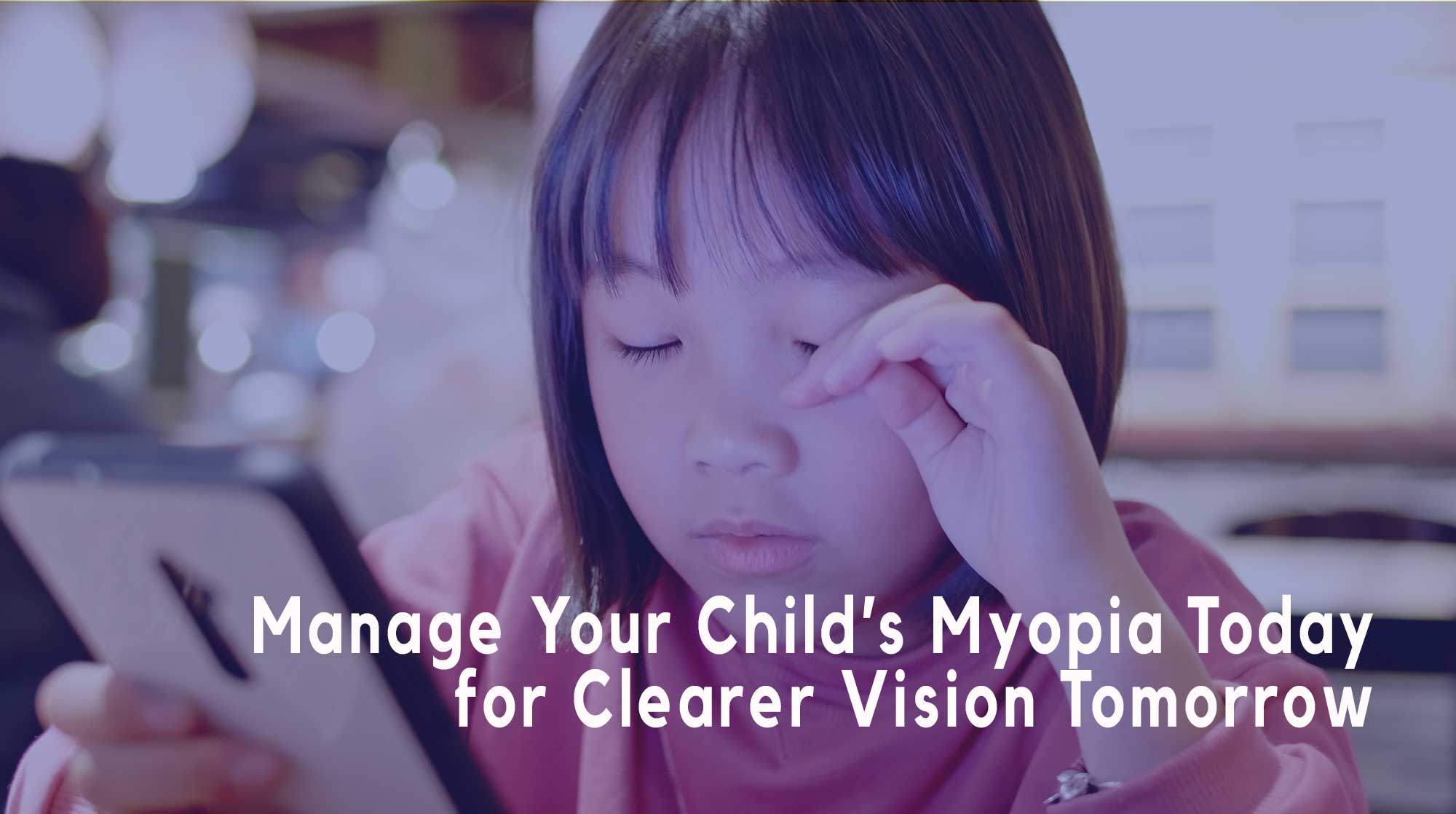
Eagle Eye Centre is committed to delivering top-quality patient care with comprehensive myopia management solutions in Singapore. Our Eagle Eye Myopia Control Programme is specifically designed to help children and teenagers slow the progression of myopia and reduce the risk of long-term eye complications. With advanced treatments and personalized care, we aim to safeguard your vision and enhance your eye health for the future.
- What is Myopia
- Singapre: The Myopia Captial of the World
- Causes of Myopia
- Why is Myopia a Problem?
- Complications of Untreated or Severe Myopia
- How Can You Manage Myopia?

What is Myopia?
Myopia, commonly referred to as “nearsightedness” or “shortsightedness,” is a vision condition where distant objects appear blurry while near objects remain clear. This occurs because light entering the eye is focused in front of the retina rather than directly on it. Myopia is caused by excessive elongation of the eyeball or the curvature of the cornea being too steep.
Myopia is one of the most common refractive errors worldwide, affecting millions of people across all age groups. The condition often begins in childhood and can worsen as the individual grows, especially during school years when the eyes are developing. Managing myopia early is crucial to prevent worsening of the condition and the complications associated with severe myopia.
Did You Know? Singapore: The Myopia Capital of the World
Singapore has one of the highest rates of myopia in the world, earning it the title of the “Myopia Capital of the World.” Studies show that approximately 65% of children in Singapore develop myopia by the age of 12, and nearly 80% of the population is myopic by adulthood. The high prevalence of myopia in Singapore is attributed to lifestyle factors, such as prolonged screen time and lack of outdoor activities during childhood.
Causes of Myopia
- Excessive elongation of the eye globe in relation to the cornea’s curvature
- Genetic factors – a family history of myopia increases the likelihood of developing the condition
- Environmental factors – extended periods of close-up tasks such as reading or screen use
- Inadequate outdoor activity during childhood, which may reduce exposure to natural light
Why is Myopia a Problem?
While mild myopia may only require corrective lenses or contact lenses for clearer vision, more severe myopia can lead to serious eye health complications. As the eye elongates, the structures within the eye are stretched and thinned, leading to a higher risk of potentially sight-threatening conditions. Understanding these risks can help patients take preventive measures and seek timely treatment.
Complications of Untreated or Severe Myopia
- Retinal Detachment – The elongation of the eye increases the risk of the retina pulling away from the back of the eye, which may cause permanent vision loss if not treated promptly.
- Myopic Macular Degeneration – In cases of severe myopia, the macula (the central part of the retina responsible for detailed vision) can deteriorate, leading to irreversible vision loss.
- Glaucoma – High myopia is associated with an increased risk of glaucoma, a condition where increased eye pressure can damage the optic nerve, resulting in vision loss.
- Early Cataract – Myopic individuals are at a higher risk of developing cataracts earlier in life compared to those with normal vision. Cataracts cloud the natural lens of the eye and can lead to impaired vision.
“Undetected and uncorrected myopia before the age of 6 can lead to lazy eyes (amblyopia).”
Early detection and treatment of myopia are crucial, particularly in children. If myopia is not addressed early, it can lead to amblyopia (lazy eye), a condition where the brain starts favoring one eye over the other due to poor vision. Correcting myopia with glasses or contact lenses can prevent this condition and support healthy visual development.
How Can You Manage Myopia?
Managing myopia is essential to reduce the risk of complications and maintain long-term eye health. Treatment options include prescription glasses, contact lenses, or refractive surgery for adults with stable myopia. Orthokeratology, or corneal reshaping lenses worn overnight, may also help slow the progression of myopia in children. Regular eye exams and early intervention play a key role in managing the condition effectively.
